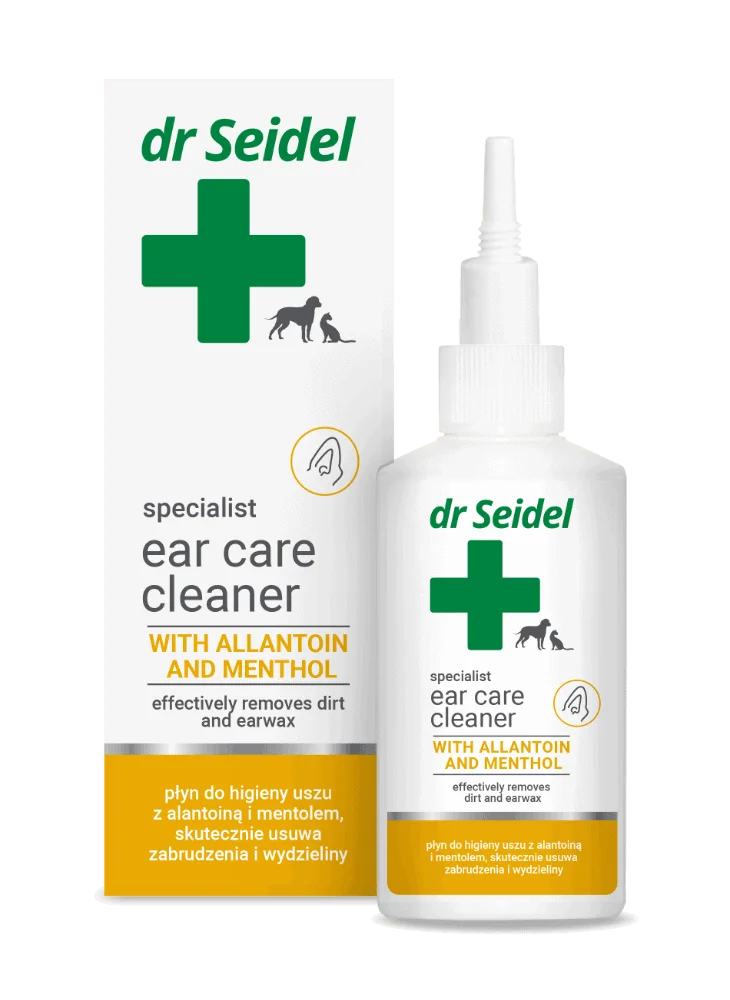How to clean cat’s ears?
How to clean cat’s ears?
If you own a meowing four-legged pet, you’re probably aware of the importance of regular pet care to keep your cat healthy for years to come. For these purposes, there are many treatments to choose from. They do not have to be tiring or bothersome if you approach them properly. This includes cleaning your cat’s ears. By doing so, you can be sure that your cat will never have any hearing problems. Also, you can detect infections, such as ear scabies, in time and prevent the rapid spread of the disease to the ear. Unfortunately, many people do not know how to do this or do not realise how important it is. If you use the right products and do it skilfully, you can protect your pet from many serious diseases. The best approach is to perform care treatments on a regular basis.
Care is essential – we should not forget about it
What is important here is regularity, and quick reaction when you notice something disturbing. The most common diseases that affect cat ears are various types of allergies, mycosis, bacterial infections, and ear scabies which occurs in the ear in the form of a brown deposit. To prevent the disease from spreading, check your cat’s ears about once a week. If you do not notice anything suspicious, you do not have to take any action, but if you notice dirt, secretion or any other substance, you should clean your cat’s ear.
How to clean cat’s ears? What products to use?
It is very difficult to carry out proper care without the right product. Washing ears with just water will not usually do the job and your pet will only get nervous. However, pet shops offer the right products for this purpose, such as dr Seidel ear cleaner for dogs and cats. What is important, the preparation is intended for frequent use, which also helps to prevent the development of inflammation. A soft applicator allows you to apply the product into the ear. The liquid softens the epidermis and immediately removes dirt and secretions. It consists of mild washing agents, allantoin, lactic acid and salicylic acid. The latter two substances have antiseptic properties, making this cat’s ear cleaner really effective. Additionally, the preparation helps to regenerate irritated and damaged epidermis and thus accelerates wound healing. Its price is not too high and one package will easily last for many applications.
How to make the treatment less stressful for my cat?
If ear care is stressful or painful for a cat, the owner will be reluctant to do it, and in the end, will even stop doing it. Therefore, try to perform the treatment from the youngest years of your cat’s life so that it can get used to it and treat it as a routine and painless procedure. Older cats can also get used to it. However, you have to take into account that for the whole thing to be successful, you have to approach it professionally. First, you have to get the right preparation and carry out the treatment properly. If you have no practise or experience, you should certainly not try to push any swabs or sticks deep into the ears because you can damage or clog them completely. These are risky activities that require some practice. The cat ear cleaner has a dedicated applicator which is completely safe and painless for your cat.
Another matter is the ritual of care itself. Immediately before the start of the treatment and after the treatment, the animal should be given its favourite treat.. Treats for the cat provide some positive reinforcement, make the cat calm and prevent it from trying to run away. Moreover, the cat will not object to undergoing the treatment once again in the future. Immediately after the application of the preparation, massage the ear a little bit to facilitate the penetration of the product into the skin. If you use various kinds of preparations regularly, you should remember that, like any other cosmetics or medicines, they have their expiry date. If the preparation is expired, it is better to discontinue its use.
Outdoor cats are much more susceptible to ear diseases, especially cats that have more frequent and greater contact with dirt, rain and moisture. Also animals with larger or even hanging ears may have more frequent problems with their ears. Lack of air access to the ear promotes the development of bacteria and fungi. In such a case, you should pay even more attention to the ear hygiene.
15 June 2018

